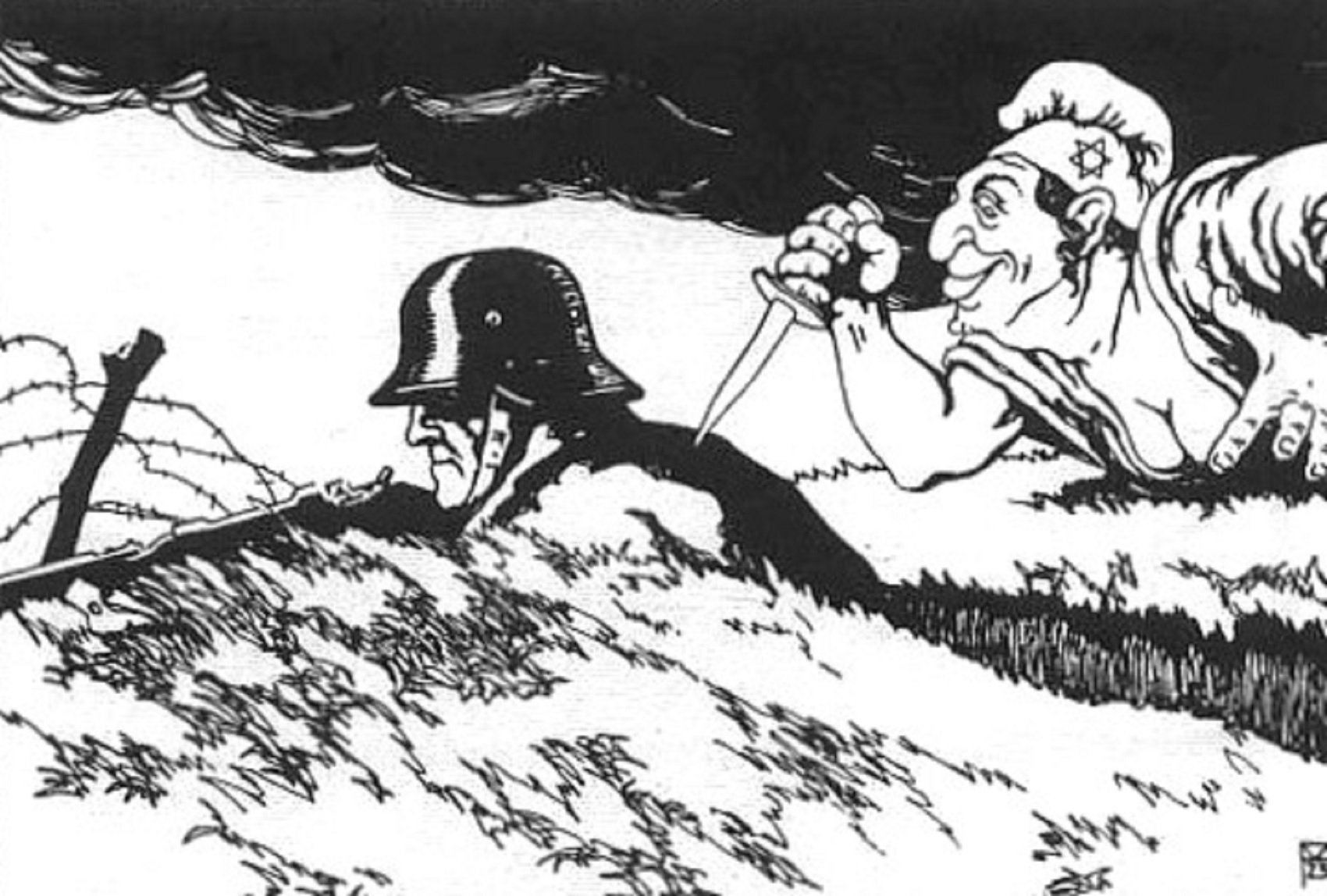An uncomfortable slip-up this Sunday at the Spanish right's rally in Madrid. In the manifesto that was read out to the crowd, there was one phrase which it was difficult to simply pass over: "The Spanish government of Pedro Sánchez has given a stab in the back to the law and the justice system."
The manifesto, full of complaints about the Spanish prime minister's supposed pandering to the interests of Catalan independence, was, in this phrase, recycling an argument that Adolf Hitler used in his rise to power, in order to undermine the legitimacy of Germany's democratic Weimar Republic.
The legend of the stab-in-the-back, Dolchstoßlegende, is a widely-studied historical phenomenon referring to a social myth that played a major role in German society during the interwar period. This theory, used by the 1920s German right and especially by the Nazis, attributed the World War One defeat of Germany to internal affairs rather than military failure. Hitler accused Jews, pacifists and Bolsheviks of stabbing their country in the back, by overthrowing the German monarchy at home, while the true patriots were fighting on the front.
The Nazis distributed pamphlets with this message in the 1920s to discredit the Weimar Republic. Many of them were anti-Semitic.

German politician Philipp Scheidemann, one of the founders of the Weimar Republic, stabbing the German army in the back, accompanied by Matthias Erzberger, a pacifist politician, firmly opposed to the actions of the Kaiser, signatory of the armistice on November 11th, 1918, which ended the war.
The theory put a special emphasis on the argument that the German people didn't know how to respond to the "patriotic call at the key moment of the war." In this way, it was affirmed that certain elements "had sabotaged the war effort" deliberately, thus exonerating the military from the responsibility of their defeat. These supposed "elements" were later obsessively identified with Jews and left-wingers by Hitler.

